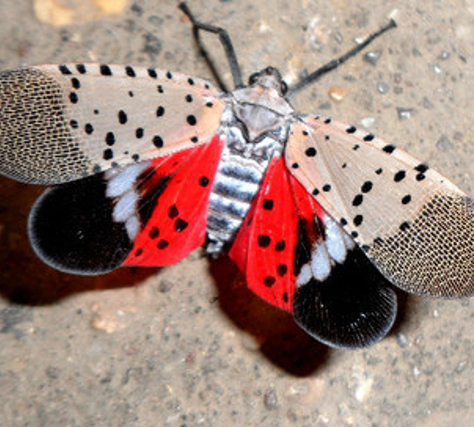FREEHOLD, NJ –The Monmouth County Board of County Commissioners would like to spread awareness about the Spotted Lanternfly which is an invasive planthopper that can affect agricultural crops that are important to the County.
“The County is coordinating efforts between the Monmouth County Parks System, Shade Tree Commission, Mosquito Control Division and the Grown in Monmouth team to make every effort to ensure this insect does not impact the quality of life in Monmouth County,” said Commissioner Director Thomas A. Arnone. “The Spotted Lanternfly, while harmless to humans and animals, is a danger to fruit crops and trees. We are asking everyone to do their part to eliminate this threat to our plants and our agricultural communities.”
The Spotted Lanternfly feeds on the sap of over 70 different plants. As the insect feeds, it excretes a honey dew that can attract bees, wasps and other insects. The dew can also lead to build up of fungus on plants, outdoor furniture and other surfaces.
“As part of our ongoing effort to keep our communities and parks free of the Spotted Lanternfly, we will be posting flyers from the New Jersey Department of Agriculture in various locations throughout the County to raise awareness about this pest,” said Commissioner Lillian G. Burry. “Our agricultural communities are vital to our economic success so please make sure to report any Spotted Lanternflies in any of its life stages.”
Signs that the Spotted Lanternfly has affected plants include:
- Plants that ooze or weep and have a fermented odor
- Buildup of sticky fluid (honeydew) on plants and on the ground underneath infested plants
- Sooty mold on infested plants
Inspect trees and plants for signs of this pest, particularly at dusk and at night when the insects tend to gather in large groups on the trunks or stems of plants, and inspect trees (in particular, tree of heaven), bricks, stone, and other smooth surfaces for egg masses.
If the Spotted Lanternfly is found, residents can go http://www.badbug.nj.gov/ to report a sighting.




